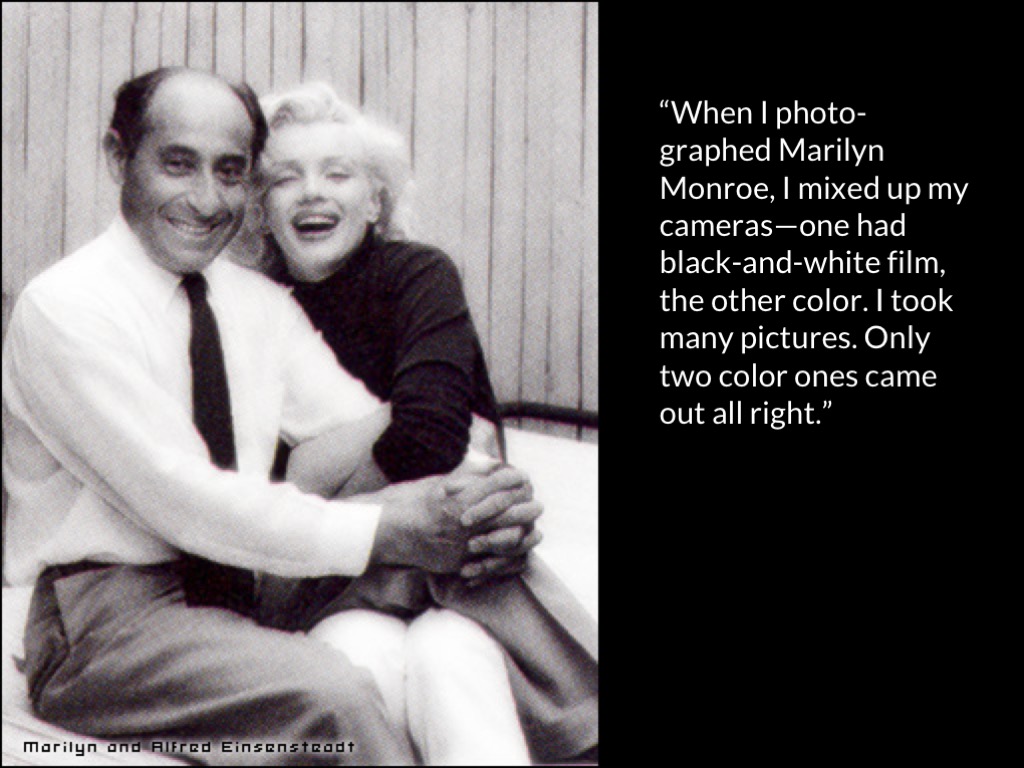Click here and press the right key for the next slide (or swipe left)
also ...
Press the left key to go backwards (or swipe right)
Press n to toggle whether notes are shown (or add '?notes' to the url before the #)
Press m or double tap to slide thumbnails (menu)
Press ? at any time to show the keyboard shortcuts
Rigid Designators


‘Common words, even proper names, are usually really descriptions. That is to say, the thought in the mind of a person using a proper name correctly can generally only be expressed explicitly if we replace the proper name by a description.’
Russell, 1910 [1963] p. 206
‘Alfred Eisenstaedt lived in Jackson Heights’.
‘The photojournalist who mixed up his cameras while photographing Marilyn Monroe lived in Jackson Heights.’
A rigid designator is an expression that refers to the same individual in every context of evaluation
(see Kripke 1980: 48).
Counterfactual possibility: Eisenstaedt couldn’t make it so Martha Holmes (who lived in Manhattan) photographed Monroe.
Names are rigid designators.
Descriptions are not rigid designators.
Therefore:
It is false that ‘proper names are usually really descriptions’.
But: rigidification
‘The actual photojournalist who mixed up his cameras while photographing Marilyn Monroe lived in Jackson Heights.’
Possible project:
Are proper names usually really descriptions?